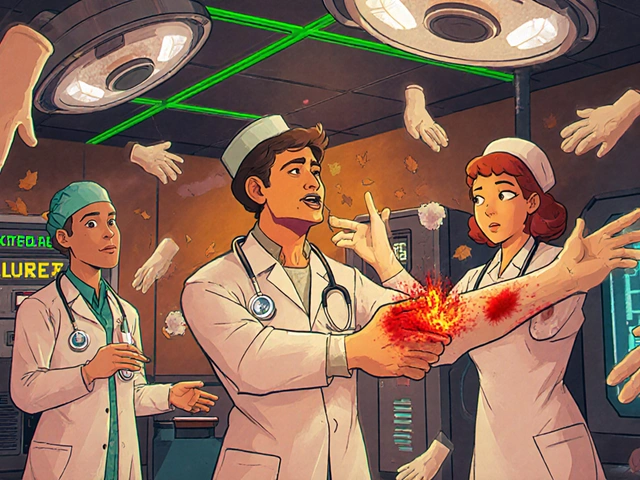Advanced cancer: Practical help for treatment, meds, and quality of life
Facing advanced cancer shifts focus. You still want effective treatment, but day-to-day comfort and clear decisions matter more than ever. This page pulls together practical tips on treatment choices, symptom control, medication safety, and where to look for reliable help so you can make sharper, safer choices.
Treatment choices and palliative care
What matters most is your goal. Do you want the most aggressive therapy available, a balance of benefit and side effects, or comfort-focused care? Ask your oncologist to spell out likely benefits, main risks, and how a treatment will affect your quality of life week to week. If something isn’t clear, ask for numbers—how many people improved, for how long, and what common side effects were.
Palliative care isn’t “giving up.” It’s specialized care that treats symptoms, reduces side effects, and helps with decisions. Early palliative involvement often means less pain, fewer ER visits, and better mood. Consider a second opinion if your options are limited or a complex clinical trial is on the table.
Clinical trials can give access to new drugs—immunotherapy, targeted agents, or combinations. Look up trials on ClinicalTrials.gov and ask the study team about location, travel help, and how side effects are handled. Don’t sign anything until you understand the visits, costs, and who pays for routine care.
Medication safety and practical tips
Keep a single, up-to-date medicine list with doses and reasons. Share it at every visit. That helps catch dangerous interactions—many chemo drugs mix badly with common meds, supplements, or herbal products.
Buying drugs online? Be cautious. Use pharmacies that require a prescription, show full contact details, and have clear licensing or accreditation. If a site sells prescription cancer drugs without asking for a prescription, walk away.
Manage symptoms with clear plans: for pain, discuss options like scheduled opioids, plus nerve-pain meds such as gabapentin if nerve pain is present. For nausea, ask about short- and long-acting antiemetics. For fatigue, small activity changes and sleep hygiene help; steroids sometimes reduce severe fatigue but carry risks. Always check with your team before adding anything new, including vitamins or herbal remedies.
Watch for red flags: sudden breathlessness, fever during low blood counts, severe dehydration, or uncontrolled pain. Keep emergency contacts handy and a plan for when to call the clinic or go to the ER.
RXMedicin collects plain-language articles on drug safety, where to find trustworthy pharmacies, and alternatives for symptom control—use those to ask better questions at appointments. Above all, lean on your care team and a trusted friend or caregiver to keep records, track side effects, and help make decisions when choices get hard.
 2 June 2023
2 June 2023
How sorafenib is improving the prognosis of advanced cancer patients
As a blogger, I've recently come across the incredible impact sorafenib has on the prognosis of advanced cancer patients. Sorafenib, a targeted therapy drug, works by blocking enzymes that promote cancer cell growth, ultimately slowing down the progression of the disease. Studies have shown that this treatment significantly improves survival rates and reduces symptoms in patients with advanced kidney, liver, and thyroid cancers. With fewer side effects compared to traditional chemotherapy, sorafenib offers a more tolerable option for those battling these aggressive cancers. I am excited to see how this innovative drug continues to change the lives of advanced cancer patients worldwide.
Latest Posts
-

Atomoxetine Overdose: What to Watch For and How It’s Treated
-

Elderly Dehydration and Diuretics: How to Protect Kidneys and Prevent Hospitalization
-

Latex Allergy: Cross-Reactivity and Workplace Management
-

CYP450 Enzyme Interactions: How Medications Compete for Metabolism
-

Buy Cheap Generic Warfarin Online - Safe Tips & Price Guide 2025

20